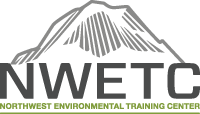This webinar is presented by Sustainable City Networks and NWETC. Purchase includes 2 audio/video recordings of the 1.5 hour sessions, for a total of 3 hours of content.
The Introduction to Sustainable Remediation webinar introduces sustainable remediation concepts and applications, including green remediation.
Sustainable remediation integrates the “triple bottom line” of sustainability, the environmental, social and economic aspects, into cleanup projects.
Experienced practitioners from the US Sustainable Remediation Forum (“SURF”) providing the webinar will define sustainable remediation and its application to reduce the environmental footprint of remediation projects while also benefiting the surrounding community and its economy.
The webinar illustrates sustainable remediation with case examples describing its practices during the investigation, remediation, operations, and monitoring of hazardous site cleanups. The course explains the drivers behind sustainable remediation and what prompts responsible parties to integrate these concepts into their cleanup programs.
This course is appropriate for a wide range of participants who want to gain perspective on the issue of sustainable remediation. For example, sustainability managers; planning and development personnel; brownfield redevelopment staff; engineers and scientists who investigate, remediate or monitor contaminated sites; consultants and contractors; local, state and federal regulators and public health personnel; as well as lawyers and news media producers who want to gain a more complete context around this topic.
John Simon, Lead Presenter
Additional Presenters:
Paul Favara
Lindsay Burton
Melissa Harclerode
Sustainable Remediation Forum Overview
The Sustainable Remediation Forum (SURF) promotes the use of sustainable practices during the investigation, construction, remediation, redevelopment, and monitoring of environmental cleanup sites, with the objective of balancing economic viability, conservation of natural resources and biodiversity, and the enhancement of the quality of life in surrounding communities. SURF was founded in 2005 and has been instrumental in developing the practice of sustainable remediation, including the publication of numerous white papers and technical articles.
